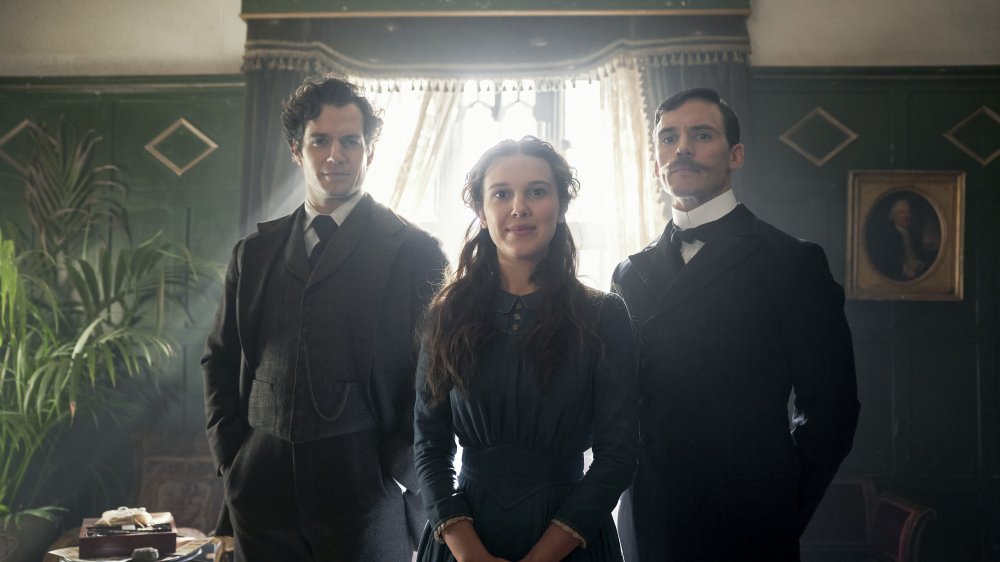The Truth About Eudoria Holmes' Secret Plan In Enola Holmes
Contains spoilers for Enola Holmes
Netflix original feature Enola Holmes follows Sherlock Holmes' titular younger sister (Millie Bobby Brown) as she searches London for her missing mother Eudoria, and tangles with a young runaway lord. Based on Nancy Springer's YA book series The Enola Holmes Mysteries, this movie takes a feminist approach to the traditionally male-dominated tales of Sherlock Holmes by Sir Arthur Conan Doyle. It isn't until partway through the film, however, that we realize just how closely that theme ties into Eudoria's disappearance.
Enola spends most of her childhood learning history, chemistry, and jiu jitsu from her mother, without so much as a visit from her older brothers, Sherlock and Mycroft. Aside from Eudoria's secret meetings with groups of women, the mother and daughter are always together. But while Eudoria (Helena Bonham Carter) ensures her daughter receives only the best education, she also keeps her from experiencing life outside their country house. We learn later that this is because Eudoria wanted to change the world for her daughter, and perhaps shield her from some illicit activities.
On Enola's 16th birthday, Eudoria disappears, leaving no trace save for a birthday present of art supplies and hand drawn cards. Enola is desperate to find her mother, so she goes to London, where she begins unraveling the mystery step by step until she eventually finds herself standing in a dark storage room. Eudoria's plans reveal themselves in this moment, as we see chemical supplies, gunpowder, explosives, and flyers promoting women's suffrage.
Eudoria's story tells of the violent history of women's suffrage
While Enola is looking for her missing mother, a historical event is playing out in the background: the landmark vote on the 1884 Parliamentary Reform Act. This act would (and did) give more men the right to vote, as voting rights for men were still restricted at this time in the United Kingdom. It was one in a series of events that eventually led to the Representation of the People Act of 1928, which gave full voting rights to English women.
While the reform act is crucial to another plotline in the film, it also sheds light on Eudoria's motives for her strange behavior. Why, exactly, she left so suddenly is still a bit mystifying, but she was clearly attempting to protect Enola from her dangerous life as a suffragette. Historically, suffragettes did bomb buildings as acts of protest for their right to vote. Eudoria may have been disappointed that the 1884 Reform Act wasn't going to address women's voting and thus planned a potentially violent act of protest.
Eudoria says to her daughter at the end of the film, "I left for you, because I couldn't bear to have this world be your future. So I had to fight. You have to make some noise, if you want to be heard."
What Eudoria doesn't realize is that Enola Holmes has the grit to actually impose change on the world — she doesn't need it changed for her.

